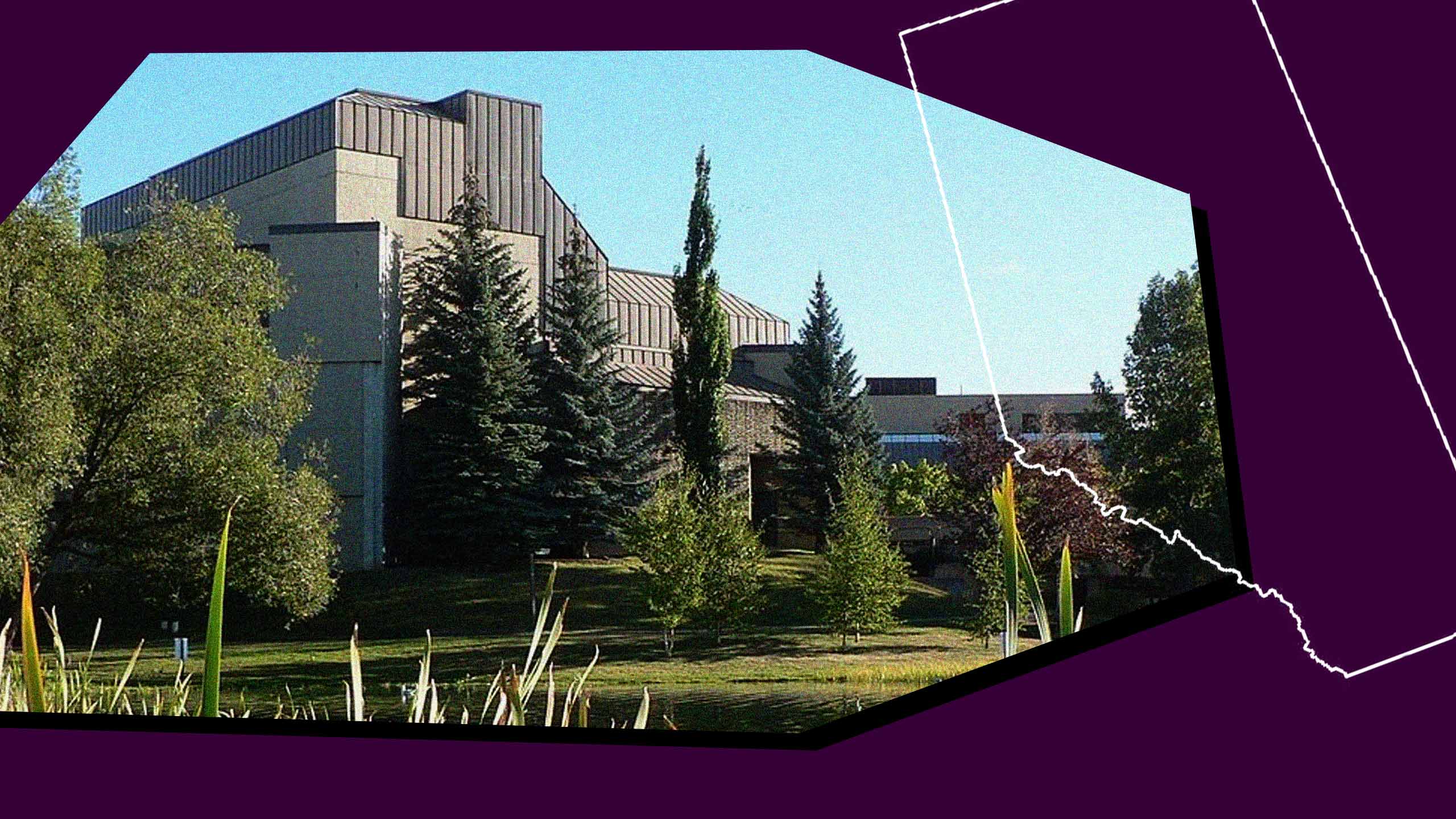Alberta’s United Conservative government announced last week that it will require all colleges and universities to report annually on what they are doing to “protect free speech,” after the University of Lethbridge cancelled an appearance by disgraced former Mount Royal University professor Frances Widdowson.
Glynnis Lieb, executive director of the University of Alberta’s Fyrefly Institute for Gender and Sexual Diversity, says the government’s new mandate and increasing involvement in the operations of post-secondary institutions is cause for concern, given its history with LGBTQ2S+ issues. After taking power in 2019, the UCP pushed back against protections for students in Gay-Straight Alliances, and dismantled a group that was working to end conversion therapy.
“When we have a government that is actively controlling things within universities, for me, what it means is that there is a very big push to fall in line with the flavour of that particular government. So if it’s a government that tends to be a bit less supportive of our community, then we have to be fearful,” Lieb says.
“This government sent a strong message from the start that they were putting a roadblock up in front of the progress of the LGBTQ2S+ community and its seeking of equity and inclusion. And now if there is a heavy-handed approach to controlling who gets to do what and say what at universities, I think we had better be nervous and we had better be paying attention as a community.”
Lieb says free speech on campus is a challenging issue for universities, where the free expression of ideas should include difficult discussions and debate rooted in fact. What gets tricky is deciding when speech crosses a line into perpetuating hatred against specific groups of people.
Widdowson was fired from Mount Royal University in 2021, months after a Calgary Herald story described a “toxic environment” for racialized staff members, including at least two other professors who alleged targeted harassment by Widdowson as a reason they left the university. She has also stirred controversy by touting the supposed benefits of Canada’s residential schools—and saying the Black Lives Matter movement “destroyed” Mount Royal University.
On her blog, Widdowson wrote that the university also told her that a tweet she posted about “misgendering fatigue” had violated its policies. Her Twitter account, which lists her pronouns as “it/maybe,” is rife with tweets mocking trans and Indigenous activists.
Since her firing, Widdowson has predictably positioned herself as a scorned hero fighting against the “woke academy” and uses the controversy to raise money for herself. She was invited to speak at the University of Lethbridge by Paul Viminitz, an instructor whom the Calgary Herald reported was disciplined for using the n-word in a 2021 classroom lecture.
U of L students launched two petitions opposing Widdowson’s speech, which was to be titled “How ‘Woke-ism’ Threatens Academic Freedom.” The petitions combined gathered more than 3,000 signatures before the university cancelled it.
“Her presence on campus not only denigrates the status of the university by giving space to a speaker who promotes historical falsities and racial bigotry, but endangers students’ well-being and safety,” one petition read.
The Canadian Association of University Teachers issued a statement criticizing U of L for cancelling the speech last week, but later came out against Alberta’s free speech reporting mandate in a statement to CBC, saying the government “cannot and should not dictate how universities run their internal academic affairs.”
The provincial government’s press release about the mandate quoted support from two professors in other provinces, but none from Alberta.
In 2019, under former premier Jason Kenney, the province required that all publicly funded post-secondary institutions endorse the Chicago principles of free expression, or develop a similar policy. One exception was made for Burman University, a Seventh-day Adventist school in Lacombe that follows a strict Christian doctrine.
Its meddling in post-secondary affairs has seemingly ramped up. After Athabasca University president Peter Scott spoke out against the government’s plans for his school, he was fired last week by the university’s board of governors—a board packed with recent Nicolaides appointees, according to the CBC.
University of Calgary Students’ Union president Nicole Schmidt says the free speech requirement is “politicizing a non-existent issue” and creating needless red tape for post-secondary institutions.
“Free speech on campus is not under threat, and this is not an issue that we hear from students about,” Schmidt says,adding that the union supports free speech on campus, as long as it doesn’t cross over into hateful speech. The only related concerns she’s heard from students at the U of C are from students who have been intimidated, harassed and followed by anti-abortion protesters.
“We’ve asked the university to intervene and restrict the graphic protest imagery, as well as stop the harassment of students, but the university has failed to take action,” she says.
The U of C student union wrote to Nicolaides, asking him to consult students before taking action on the free speech requirement, but didn’t hear back.
Nicolaides said in an email to Xtra that he has spoken with “many student leaders and students-at-large who are indeed concerned with inadequate protection for free speech on our campuses” and that he will “continue to speak with students … about this and other important topics.”
In a separate statement forwarded to Xtra, Nicolaides said it’s important for universities and colleges to foster a strong culture of free speech and diverse viewpoints, “even when those viewpoints are deemed controversial, or even offensive, barring speech intended to incite hatred or violence of course.” He added that his statement “should not be construed as agreement” with any of Widdowson’s comments.
Lieb says she is not confident the free speech mandate accurately reflects the needs, fears or desires of academics in Alberta.
“This is about the current government’s priorities, and the current government very much sending a message that they are running things,” she says.


 Why you can trust Xtra
Why you can trust Xtra


